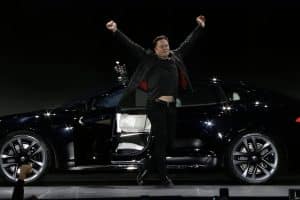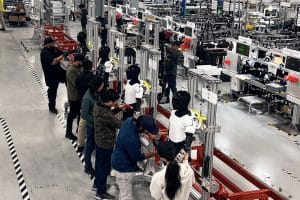Today, Israel-based battery manufacturer StoreDot said that it has become the first company to manufacture silicon-dominant anode XFC technologies on a production line. StoreDot is creating cells that are extremely similar to Tesla’s 4680 chemistry that it unveiled during its Battery Day event in September 2020.
In September, Teslarati reported that StoreDot had officially replicated Tesla’s 4680 cells with a full charge time of just ten minutes. It was a massive development for the battery manufacturer, which had been working on the technology for three years.
StoreDot’s 4680 cells appear to be similar to Tesla’s, but the big difference is the claim about the charge rate. While Tesla’s 4680 cells are rumored to charge in fifteen minutes, according to Keith Ritter of PE Engineer Compliance (via InsideEVs), StoreDot’s cells are capable of a ten-minute charge.
Now, StoreDot is claiming that it has become the first company to develop silicon-dominant cells that can charge in ten minutes on a massive scale: large enough to supply batteries to EVs.
The company is working toward production at a scale large enough to supply manufacturers of electric vehicles with XFC pouch cells that will decrease charging times by roughly half. StoreDot has already started to ship A-Sample cells in China and will be sent to automotive companies for testing in the near future.
StoreDot CEO Dr. Doron Myersdorf said:
“StoreDot’s mission is to provide global automotive manufacturers extreme fast charging technologies that will enable them to help consumers overcome what is known to be the major barrier to mass EV adoption. We offer a 50% reduction in charging time for the same cost, but mass production on new technologies is a critical step, which is why these first A-Series Samples are such a major milestone in our technology roadmap. These XFC sample cells will shortly be shipped to our global car-making partners for real-world testing and we are confident they will play a major role in increasing the crucial “miles per minute” rate which is key to driver’s experience and eliminating range anxiety.”
The ultimate goal is to have the cells developed and manufactured at a considerably large scale by 2024. At that point, ScaleDot expects to have a fully-functional product that will fast-track the development from concept to production. The company is already working on solid-state tech, too. This is expected to enter mass production by 2028.





